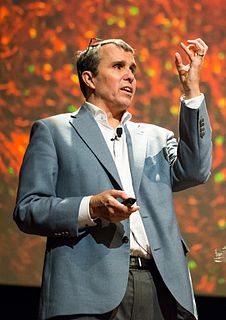A Quote by Chimamanda Ngozi Adichie
If you start thinking about being likable you are not going to tell your story honestly.
Related Quotes
If you gauge how you're doing on whether somebody is responding vocally or not, you're up a creek. You can't do that; you kind of have to be inside of your work and play the scene. And tell the story every day. Tell the story. Tell the story. Regardless of how people are responding, I'm going to tell the story.
I honestly would tell anyone young to start looking at stories and learning story, because I think that’s the next step after people go, ‘OK, I’ve had enough of that improvisation, I’ve had enough of those short comedy bits. Tell me a story, tell me a more complex story, something that lasts and maybe has a little more meaning to it.’ Don’t ever look at what’s happening now; look at what’s coming next.
The challenge is the same whether or not I'm collaborating: to empathize with your reader and to tell a story that will matter to him or her. But the mechanics of going about that challenge change when you're collaborating, because you have someone to help refine your thinking and expand your vision of what might happen.
Simply by starting to cook again, you declare your independence from the culture of fast food. As soon as you cook, you start thinking about ingredients. You start thinking about plants and animals and not the microwave. And you will find that your diet, just by that one simple act, that is greatly improved.





































